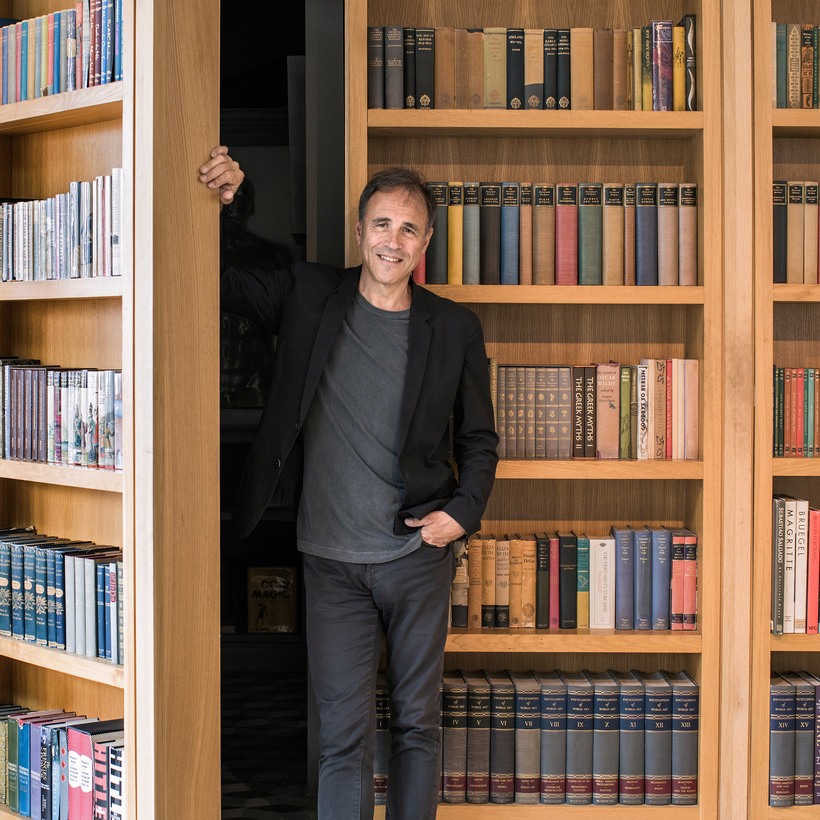Anthony Horowitz writes a lot. To be precise, he has written 73 books and 14 TV series, including the superb Foyle’s War. His 13 bestselling Alex Rider books have become a TV series on Amazon. He writes for up to 16 hours a day, though averages ten. While in Suffolk he takes his dog, Boss, for eight-mile walks and swims daily.
His wife, the TV producer Jill Green, is similarly afflicted. “She’s the only person I know who is as driven as I am,” he says. They work together at either end of a long desk. “We often find ourselves at 11 o’clock at night, and we’ll look at each other and say: what do we do with our lives? Why aren’t we out partying with everybody else? But that’s just what we do.”

